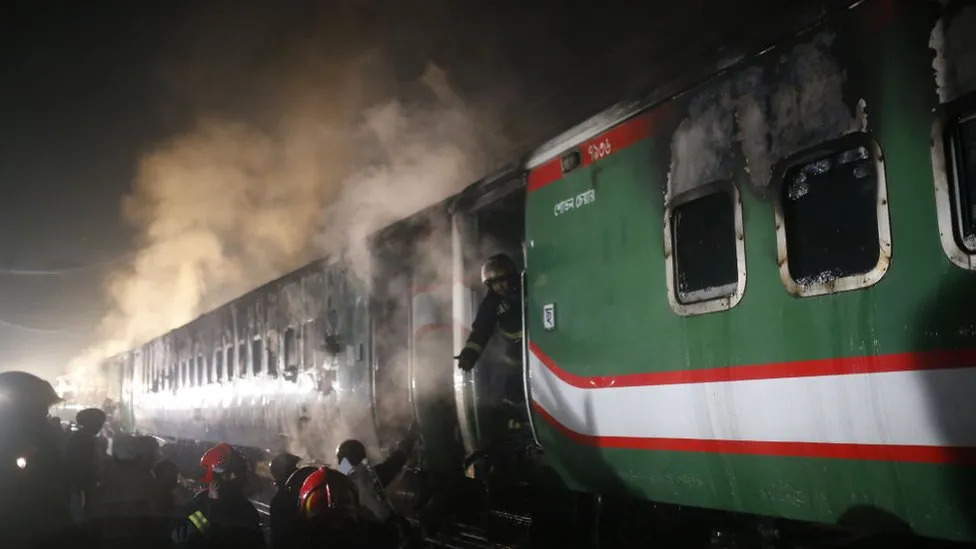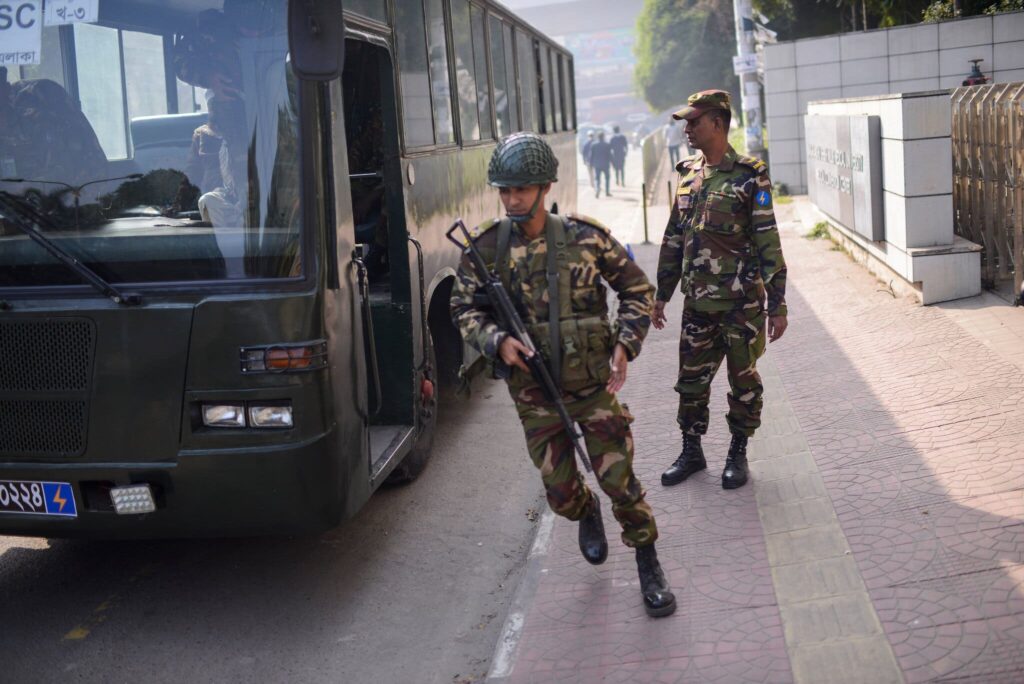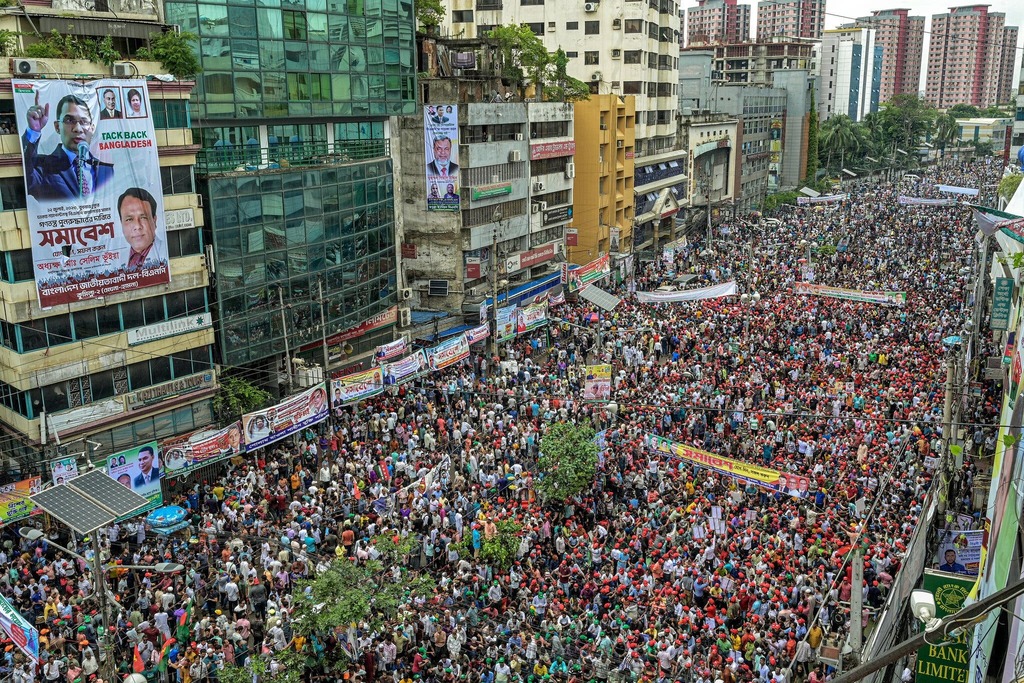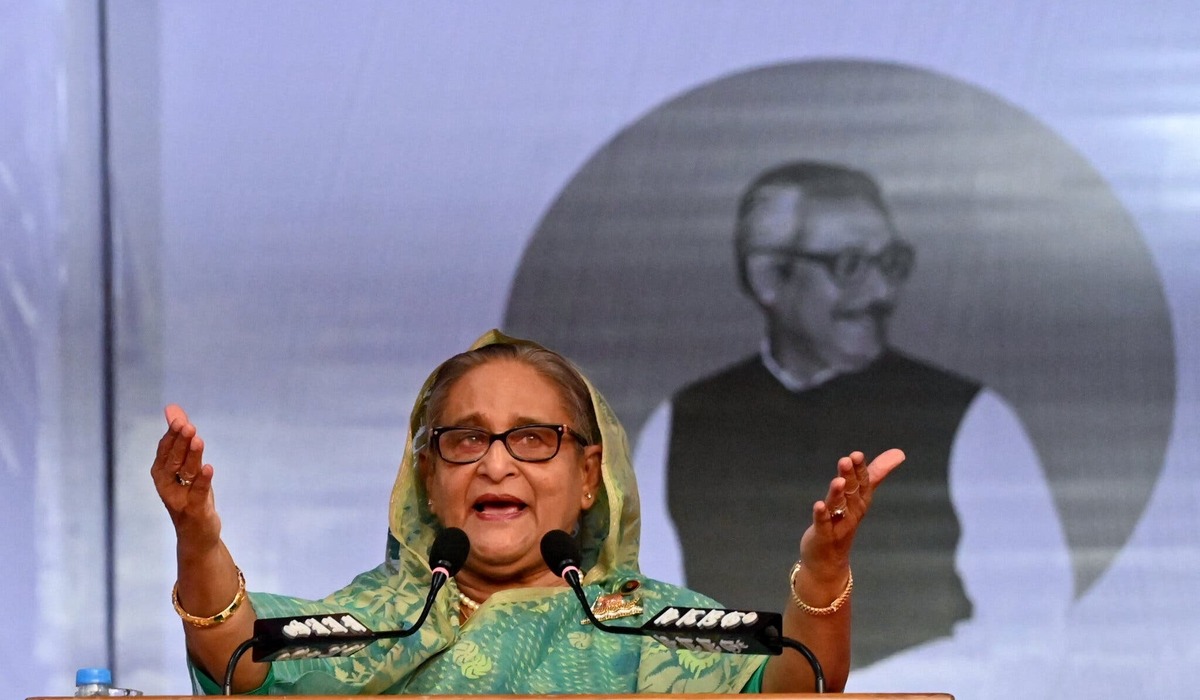A pall of smoke hung heavy over Dhaka on the eve of Bangladesh’s general election, a bitter testament to the deep divisions tearing at the nation’s democratic fabric. At least 14 polling stations were set ablaze, casting a chilling shadow on the already contentious vote, where Prime Minister Sheikh Hasina is poised to cruise to a fourth consecutive term amidst a fractured and largely boycotted opposition.
This election, expected to be a one-sided affair, reflects a stark reality: Bangladesh’s democracy stands on the precipice. While Ms. Hasina’s Awami League boasts of economic progress and development, critics paint a picture of a creeping one-party state, where dissent is stifled and institutions are wielded against political rivals.
Battleground Bangladesh: Democracy Teeters on the Edge

The main opposition, the Bangladesh Nationalist Party (BNP), stands decimated. Its leaders languish in jail, its rallies met with brutal crackdowns. Ms. Hasina’s rejection of their demand for a neutral caretaker administration during the election was the final blow, prompting the BNP and other parties to boycott the polls and call for nationwide strikes.
This defiance, however, seems only to escalate the tension. The Awami League accuses the BNP of “terrorism,” framing the opposition’s call for a non-partisan election as an attempt to disrupt the democratic process. The ruling party points to the participation of smaller parties as evidence of a vibrant democracy, though analysts see these as carefully curated “token opposition” figures.
Beyond the political theatre, simmering public discontent adds fuel to the fire. Successive blows from the pandemic and Ukraine war have strained Bangladesh’s economy, pushing up prices and shrinking foreign reserves. The “economic miracle” narrative touted by the Awami League is losing its shine, exposing deeper systemic issues like kleptocracy and a deep dependence on the garment industry.
Tensions Rise on Bangladesh’s Election Day

The BNP tried to tap into this anger, initially drawing large crowds to its rallies. But the government’s swift and brutal crackdown quickly snuffed out any flicker of hope for a genuine contest. Ms. Hasina, fuelled by a personal vendetta against a party she sees as responsible for her father’s assassination, appears determined to dismantle the BNP completely.
Sheikh Hasina’s Assured Victory
This relentless pursuit of dominance, however, comes at a heavy cost. Bangladesh’s institutions, from the security agencies to the courts, have become tools of political suppression. The Nobel laureate Muhammad Yunus’s recent jail sentence, shrouded in accusations of political vendetta, serves as a stark reminder of the shrinking space for dissent.
The result of this deeply flawed election is a foregone conclusion – Ms. Hasina’s victory is all but assured. But the real story lies in the silence of the boycotted ballot boxes, the fear that clings to the air, and the violence that punctuates the days leading up to the vote.

This election is not just about Ms. Hasina’s fourth term; it is about the fate of Bangladesh’s democracy. The question isn’t who will win the polls, but whether democracy itself will survive this one-sided affair. The smoke that hangs over Dhaka is a poignant symbol of this uncertainty, a warning sign for a nation teetering on the edge.
Also Read: 10 Prominent Exams After 12th in India for Diverse Career Paths
The international community watches with growing concern. The UN Special Rapporteur on the rights to freedom of peaceful assembly and of association voiced deep alarm at the “repressive environment” surrounding the polls. This election, marred by violence and boycotts, raises serious questions about Bangladesh’s commitment to democratic principles and its future trajectory.
